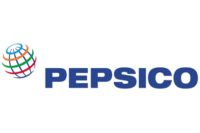PepsiCo opened its first overseas green plant in Chongqing, located in the western part of China. The company says the state-of-the-art beverage facility is important to its ongoing strategy to expand in emerging markets and broaden its portfolio of locally relevant products.
PepsiCo says it plans to fund a variety of major capital programs to grow its manufacturing capacity in China, particularly in interior and western areas. During the next two years, the company expects to open five new beverage manufacturing plants in Kunming, Zhengzhou, Quanzhou, Lanzhou and Nanchang. It also plans to strengthen its local research and development capabilities and broaden its portfolio of Chinese-designed and developed products.
“Despite the current uncertainty in many parts of the world, we have no doubt that China will remain a powerful engine of global economic expansion,” said Indra Nooyi, PepsiCo chairman and chief executive officer. “This is the largest, most ambitious development effort we’ve undertaken in our more than 25 years of doing business here.”
PepsiCo says the Chongqing plant is the first beverage plant in China to comply with the sustainable engineering standards of the Green Building Council's Leadership in Energy and Environmental Design (LEED) program. The plant uses more than 35 water- and energy-saving designs, as well as an environmental management system that monitors water and energy use on every production line and every piece of individual equipment in real time. The facility is designed to use 22 percent less water and 23 percent less energy than the average PepsiCo plant in China.
To save water, the plant utilizes a high-pressure cleaning system, water-free conveyor belt lubricant and water-saving fixtures. Water is reused for landscaping and general cleaning. In addition, 75 percent of the plant’s indoor areas feature natural lighting, including a skylight in the packing area and warehouse. A roof garden insulates the office building and saves energy for cooling and heating.
The new plant is expected to help PepsiCo reduce annual greenhouse gas emissions by 3,100 tons, water usage by 100,000 tons, and overall energy use by four million kilowatt hours compared to the former Chongqing plant.






